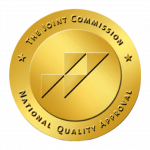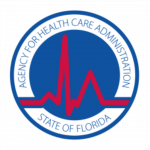Understanding Trauma and PTSD: Symptoms, Causes, and Treatments
Home » Mental Health Treatment in Florida » PTSD and Trauma
What is Trauma?
Trauma refers to the emotional response to a deeply distressing or disturbing event that overwhelms an individual’s ability to cope, causes feelings of helplessness, and diminishes their sense of self and their ability to feel a full range of emotions and experiences. Traumatic events can include natural disasters, serious accidents, physical or sexual assault, military combat, or any other event that poses a threat to life or safety.Symptoms of Trauma
Trauma can affect individuals in various ways, both immediately after the event and long-term. Common symptoms include:- Emotional Symptoms:
- Shock, denial, or disbelief
- Confusion and difficulty concentrating
- Anger, irritability, and mood swings
- Anxiety and fear
- Guilt, shame, and self-blame
- Withdrawing from others
- Feeling sad or hopeless
- Physical Symptoms:
- Insomnia or nightmares
- Fatigue
- Being startled easily
- Difficulty concentrating
- Racing heartbeat
- Aches and pains
- Muscle tension
What is PTSD?
Post-Traumatic Stress Disorder (PTSD) is a mental health condition triggered by experiencing or witnessing a traumatic event. While it’s normal to experience some degree of distress after a traumatic event, PTSD occurs when these symptoms persist for an extended period and significantly interfere with a person’s daily life.
Symptoms of PTSD
PTSD symptoms are typically grouped into four categories:
- Intrusive Memories:
- Recurrent, unwanted distressing memories of the traumatic event
- Reliving the traumatic event as if it were happening again (flashbacks)
- Upsetting dreams or nightmares about the traumatic event
- Severe emotional distress or physical reactions to reminders of the event
- Avoidance:
- Avoiding thinking or talking about the traumatic event
- Avoiding places, activities, or people that remind you of the traumatic event
- Negative Changes in Thinking and Mood:
- Negative thoughts about yourself, others, or the world
- Hopelessness about the future
- Memory problems, including not remembering important aspects of the traumatic event
- Difficulty maintaining close relationships
- Feeling detached from family and friends
- Lack of interest in activities you once enjoyed
- Difficulty experiencing positive emotions
- Feeling emotionally numb
- Changes in Physical and Emotional Reactions:
- Being easily startled or frightened
- Always being on guard for danger
- Self-destructive behavior, such as drinking too much or driving too fast
- Trouble sleeping
- Trouble concentrating
- Irritability, angry outbursts, or aggressive behavior
- Overwhelming guilt or shame
Causes of PTSD
PTSD can develop after a person is exposed to a traumatic event, particularly if the event involved a threat of injury or death. The risk factors for developing PTSD include:
- Intensity and Duration of Trauma: More severe or prolonged trauma increases the risk.
- Personal History: Previous trauma or a history of mental health issues can contribute.
- Lack of Support: Limited support from family, friends, or community.
- Additional Stress: Other stressors, such as losing a loved one, experiencing pain and injury, or having a history of substance abuse, can compound the effects of trauma.
Treatments for PTSD
PTSD is treatable, and several effective treatments can help manage symptoms and improve quality of life:
Therapy:
- Cognitive Behavioral Therapy (CBT): Helps individuals recognize and change negative thought patterns and behaviors.
- Exposure Therapy: Involves safely facing the trauma in a controlled way to help desensitize and reduce fear.
- Eye Movement Desensitization and Reprocessing (EMDR): Uses guided eye movements to help process and integrate traumatic memories.
Medication:
- Antidepressants: Such as SSRIs and SNRIs, can help manage symptoms of depression and anxiety.
- Anti-anxiety Medications: Can be used short-term to alleviate severe anxiety symptoms.
- Prazosin: Often prescribed to reduce nightmares and improve sleep in PTSD patients.
Support Groups:
- Joining a support group can provide a sense of community and understanding from others who have experienced similar trauma.
Self-care and Lifestyle Changes:
- Regular Exercise: Can help reduce stress and improve mood.
- Healthy Diet: Eating a balanced diet supports overall well-being.
- Mindfulness and Relaxation Techniques: Practices like meditation, yoga, and deep breathing can help manage stress.
- Adequate Sleep: Ensuring sufficient rest is crucial for mental health.
Both trauma and PTSD can significantly impact an individual’s life, but with the right support and treatment, it is possible to heal and regain control. If you or someone you know is struggling with the effects of trauma or PTSD, it’s important to seek help from a healthcare provider or mental health professional. Early intervention can make a significant difference in managing symptoms and improving overall well-being.




